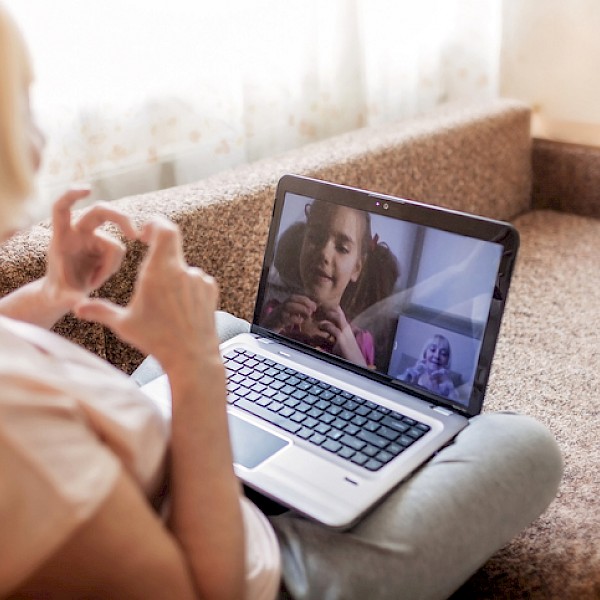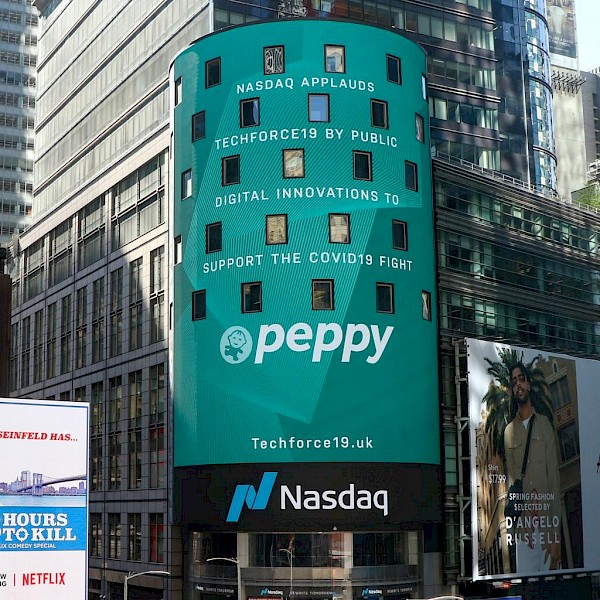Mental Health Tech goes viral



If there is one silver lining to the cloud that is COVID-19, it is that mental health is no longer taking a back seat in the minds of employers, workers and the government. And the UK’s tech startups are providing solutions.


Even before the pandemic upturned the lives and workplaces of many millions of people, the World Health Organisation reported on the economic impact of depression and anxiety. In 2019 the cost to the global economy was estimated to be US$ 1 trillion per year in lost productivity. Furthermore, for every US$ 1 put into scaled up treatment for common mental disorders, there is a return of US$ 4 in improved health and productivity.
The arrival of Covid-19 has increased this detrimental impact with even more stressors landing on the shoulders of the UK working population; social isolation, job instability, food insecurity, and the fear of getting sick, dying or losing our loved ones.
The Office of National Statistics (ONS) reported that after the government implemented its Stay at Home measures, just over half of adults (53.1%) said the pandemic was affecting their well-being, while nearly half (46.9%) reported high levels of anxiety, whilst the UK’s leading user-led anxiety charity, Anxiety UK, has revealed almost 69% of survey respondents reported their anxiety had increased or become severe and/or difficult to manage following the extension to the lockdown last month.


So how can tech solutions help? We first need to look at some recent history; for a myriad of reasons, mental health has typically been slow to embrace technology compared to other areas of medicine where science and tech combine to help medical professionals diagnose and treat patients.
Although demand outstrips supply, addressing matters of the mind is complex. It is often carried out on a one-to-one basis, relying on the individual expertise, differing techniques and personal interpretations of therapists, alongside primarily self-reporting by the patient, which in itself is often cognitively biased and misrepresented, especially in cases of trauma.
Aside from digital note taking, historically there has been little opportunity for technology to intervene in this direct information exchange, even less to be able to collect and analyse data. Even the arrival of the GPS tracking and sensor recording smartphone posed limitations - use is sporadic, certain demographics are excluded and data sharing is a legal quagmire.


To add to these challenges, tech has taken many a blow in trust over the years, mainly around the accidental exposure or deliberate misuse of personal data. In 2018, Tech London Advocates, the private sector network of tech leaders, reported an all time low in public trust of the tech industry with just 16% of London’s tech workers thinking that the public’s perception of the industry was positive.
But trust in tech is on the up. At the time of the report, TLA founder, Russ Shaw pointed out the disparity between the positive potential of technology and public perceptions in the industry. Covid-19 has accelerated an enormous shift in those perceptions.
People have embraced digital solutions during isolation. Grandparents have started using the very apps they previously derided to connect with their grandchildren. Parents are homeschooling and shopping online. Even digitally native teens have turned to new apps to make connections outside their families and bedrooms.
*Data provided by Ipsos Global Reputation Monitor confirms a significant rebound in trust for both tech and social media brands; 20% now have more trust in Apple, Amazon and Google and the Ipsos Covid-19 tracker shows that 35% of participants trust Google and 21% trust YouTube to keep them informed about the pandemic.


With rocketing mental health needs and increased reliance on tech solutions to provide some form of normality during the crisis, in early March Techforce-19 was born, an effort by a range of organisations, managed by PUBLIC presenting a challenge to the tech industry to support the elderly, vulnerable and self-isolating in the community. Funds were made available to 18 winning companies to support the trial and deployment of their solutions, with a view to taking them nationwide.
“We received 1,643 applications from diverse founders which shows the immense interest in this subject,” Mark Lazar, Head of Platform at PUBLIC told us. “From smart note taking to the use of Virtual Reality for serious trauma rehabilitation, we learned that there is a lot of different tech out there and that is hugely exciting”.
One of the winning startups, Peppy, provides new parents with remote access to trusted advice from perinatal and mental health experts, a solution that is most often used by companies to help parents back to work.
“Peppy helps individuals and families from going down this cascade of deteriorating mental health”, explains Co-Founder, Mridula Pore. “You are not clinically ill, but if your mental health is impacted, then so is your work.”
Mridula and her team noted that anxiety was increasing exponentially during isolation. Postnatal help had fallen off a cliff and midwife visits were no more. Being able to take their solution to a wider audience illustrated the severity of the problem; over 10,000 applications were received, weighted towards BAME participants and those on Universal Credit. Peppy’s technology had uncovered more than a mental health problem.
''One of the defining characteristics of UK tech entrepreneurs has always been their agility and strengths in finding opportunities in tough times'' says Russ. “Lest we forget the UK tech sector grew from the ashes of the global financial crisis. Covid-19 has not been an exception, and across multiple verticals from fintech and healthtech to edtech and retailtech, we have seen exceptional innovation and creativity to pivot in the face of unparalleled economic disruption”.


Coronavirus may have ambushed the world with the perfect storm for a mental health crisis but it has also opened the door for technology to help people get the mental health care they need. And in response, the UK’s tech startups have done what they do best; pivot, innovate and create solutions.
Enquire NowSimply provide us your contact details and we will be in touch |
Empiric is a dynamic technology and transformation recruitment agency specialising in data, digital, cloud, security and transformation. We supply technology and change recruitment services to businesses looking for both contract and permanent professionals.
Empiric are committed to changing the gender and diversity imbalance within the technology sector. In addition to Next Tech Girls we proactively target skilled professionals from minority groups which in turn can help you meet your own diversity commitments. Our active investment within the tech community allows us to engage with specific talent pools and deliver a short list of relevant and diverse candidates. For more information contact 02036757777 To view our latest job opportunities click here. |